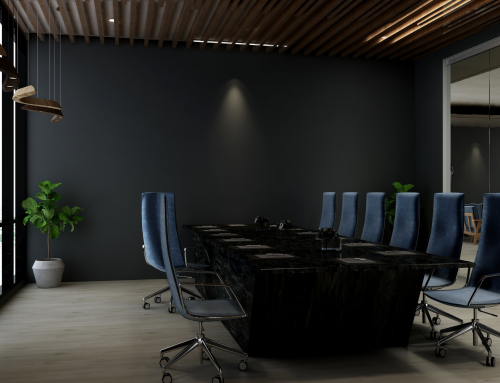When you start planning your business’s next event, finding the perfect venue is a priority. Is the hotel in a great location? Are there enough rooms available for your guests? Is the price right?
Initially, event technology may not be top of mind. It’s no wonder, then, that certain hotel contract clauses — particularly their stipulations around who can and can’t supply event technology for an event — catch many event stakeholders by surprise.
Often worded ambiguously and occupying only a few lines amidst reams of dense legalese, the importance of this detail often doesn’t become evident until after you’ve signed on the dotted line: “By the way, you’ll incur these penalties if you use someone besides our preferred event technology vendor.”
Hotels often try to frame these clauses positively. “Our preferred technicians know our venue like the back of their hands! Your event will go off without a hitch.”
Here at innoVia Productions, we know better.
Hotel-Preferred Event Technology: An Uncomfortable History
Long ago, client-preferred event technology companies were the rule, not the exception. Most often, clients brought in whoever they liked to work their corporate events. If a client used the hotel’s preferred in-house vendor, that contracted vendor would pay the hotel 10%–20% commissions on equipment used for the event (typically omitting commissions on labor, services, and supplemental equipment not inventoried on the hotel’s property).
That all changed in the 1990s when Marriott International realized that by replacing outsourced companies with hotel-owned and operated event technology departments, they could earn a 70% profit not just on equipment, but on every dollar the customer spent on AV.
Thus, groups like Marriott’s Visual Productions (MVP) were born. MVP toured the globe, setting up Marriott-owned and operated event technology teams at Marriott hotels. Hotel profits soared, and event technology became one of their most profitable departments with the hotel division.
With the Great Recession of 2008, the tide changed again. Hospitality cashflow suffered, and hotels no longer had the CapEx available to spend outfitting and maintaining full-time event technology teams. (I would know — I led one.)
Heritage event technology companies that focused on hotel AV contracts as a main revenue source sharpened their pencils and upped their game. They offered more than half of the entire revenue stream to hotels in exchange for long-term partnerships as the hotels’ preferred “in-house” AV company.
It wasn’t as lucrative as the 70% profit of the MVP days, but with the economics of the time, the deal was too good to pass up. Out went the MVP self-operated model; in with a fury came hotel-preferred vendors.

The Hotel-Preferred Policy Spiral
The hotel-preferred vendor model may sound better for the customer — and in some ways, it might be. The problem, however, is that this model still definitely serves the hotel first and the client last.
Because of the hotel-preferred vendor model, event technology is extremely profitable for hotels — often second only to room rentals. Removing the burden of hiring and managing full-time employees and capital expenditure on inventory makes the endeavor outrageously lucrative. It’s high-margin business that comes with very little risk, effort, or fiscal commitment from the hotel.
That’s why hotels discourage customers from outsourcing their event technology, whether verbally or financially.
Now, as the industry has again been disrupted, hotels are seeking to offset pandemic-induced struggles. Because event technology is a high-value area for them, they’re looking to squeeze as much profit as possible from that revenue stream — aka you.
Penalties for client-preferred vendors have been steadily climbing even as the client’s freedom to choose their own event technology team declines. And if things continue as they have, it will only get worse.
To be clear, we’re not saying hotels are maliciously seeking to harm their clients. Of course they need to take care of their financial interests. We’re just saying it doesn’t have to be at your expense.
Event stakeholders don’t have to accept increasingly outrageous penalties OR an unvetted vendor whose customer loyalty is impeded.
What Does the Hotel-Preferred Vendor Model Mean for Your Events?
If you’re running a one-off event and a transactional experience is acceptable, a hotel’s preferred event technology vendor may be just fine. But you often need more, and hotels discourage you from pursuing it.
If your company hosts multiple similar events per year, you likely need to provide a consistent experience that reflects your level of excellence. The conference you’re hosting in Europe in June should be just as smooth as the one you hosted in Texas in January.
But consistency is impossible when hiring event technology companies transactionally. You can end up overpaying for a product that doesn’t reflect your business’s standards.
The only way to achieve the level of consistency you and your guests deserve is by either:
- Using your organization’s vetted preferred vendors, OR,
- Spending hours vetting each hotel-preferred vendor’s competency — hours you don’t have
On top of that, because hotel-preferred vendors pay the hotel a large commission, your dollar may not go as far in securing an outstanding event. On a $50k customer event, the hotel’s preferred AV vendor has less than $25k to invest in your event, which can result in underperforming services and inflated equipment and labor rates.

How to Avoid Exclusivity Clauses
Your chosen hotel may make you feel like your hands are tied. Don’t worry — they aren’t. Exclusivity clauses in contracts can’t always be avoided, but they can be addressed. Here’s how:
- Read contracts thoroughly and ask about ambiguous wording. If you don’t understand a sentence or if a clause infringes on the way you do business, underline it in red pen and ask your salesperson to explain it.
- Leverage your AV spend for:
- Hotel Concessions: If you acquiesce and agree to use the hotel’s preferred AV vendor, use that additional spend with the hotel to leverage concessions on hotel offerings like food and beverage, room rentals, 24-hour holds, Wi-Fi, bellman services, or even sleeping room rates.
- AV Discounts: The hotel’s preferred in-house vendor typically has inflated prices and add-on charges to help offset the commissions they pay to the hotel. Ask the hotel to reduce the commissions it receives from its vendor. (Yes, they can do that.) If you play your cards right, a reduction from 50% commissions to 25% commissions on your event should result in an additional 25% reduction in total AV costs for you.
- If a contract references another document, like “production guidelines,” ask to see that document. If you don’t ask, it may not be provided.
- Redline any references to other parties’ policies. You’re only doing business with the hotel.
- Consult your lawyer (or a friend who practices). Have them create a simple, one-paragraph clause for you to insert into all contracts that supersedes any language penalizing you for bringing in your preferred vendor.
You can also implement a Strategic Meeting Management Program, which leverages your spending in a way that eliminates transactional challenges. If you’d like to learn more about such a program, check back with our blog in March or contact us today.
Final Thoughts
Now that you understand how a hotel’s preferred event technology vendor benefits the hotels’ bottom lines — not yours — leverage this information to develop a better event technology sourcing strategy that helps your organization achieve its event goals.
If you produce meetings across the globe using event technology and want an efficient process that results in consistent white glove service and fair pricing, give innoVia a call. We’ve produced events on six continents and in 125 cities, and we guarantee excellence everywhere, every time.







